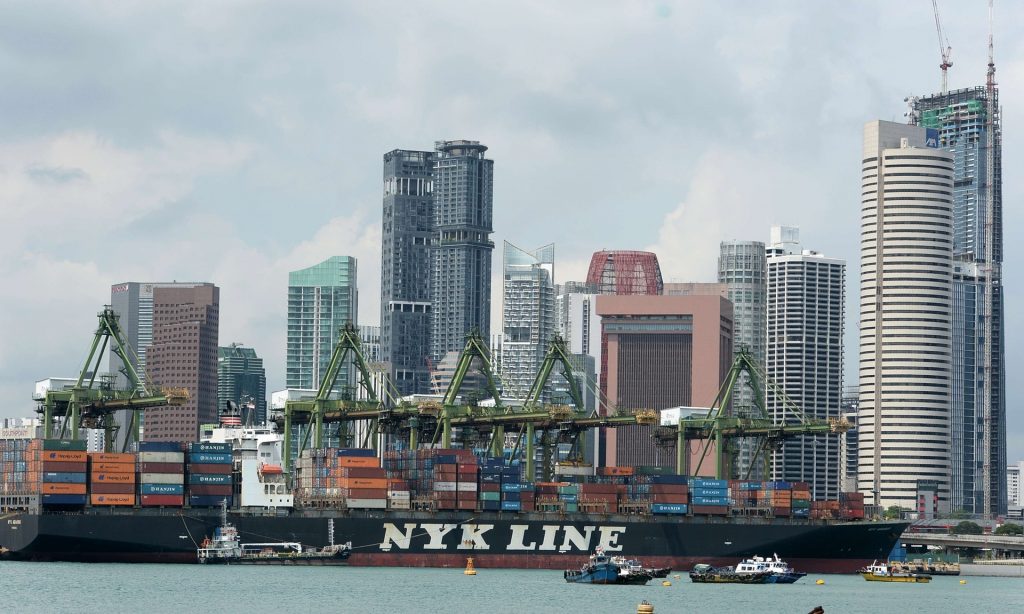
Why the falling oil price may not lead to boom
There was a time when Blue Monday meant a song by New Order. These days it is the third Monday in January, allegedly the most depressing day of the year.
Whether there is any scientific basis for this claim is debatable, but for what it’s worth the argument is that people feel miserable because Christmas is over, the credit card bills are arriving, it’s dark when you go to work in the morning and it’s dark when you head home.
This year, there has been an additional reason to feel down in the dumps: it is more than 80 years since financial markets have had such a miserable start to the year. The gloomy mood was summed up by RBS, which advised clients to sell everything apart from high-grade bonds.
The markets are haunted by the fear of recession. That hardly bears thinking about given that the repair job from the biggest slump of the postwar age is far from complete. The net sum of seven years of unprecedented stimulus provided by zero interest rates and quantitative easing would be a half-baked recovery, a widening of the gap between rich and poor, emerging markets in crisis, and developed countries deep in deflation.
All of which explains why policymakers are hoping that the bears are wrong and that the markets are making a fuss about nothing. Indeed, the dumping of shares and the collapse in the oil price below $30 a barrel will quickly be forgotten if the global economy continues to expand at its current modest pace.
The idea that a falling oil price might be a problem seems intuitively wrong. Since the early 1970s there has been a simple equation: sharply rising oil price equals global recession. That held true in 1973-74, 1979-80, 1990 and 2008. Meanwhile, periods when the oil price has been falling – the mid-1980s and the second half of the 1990s – have been associated with booms.
There’s a reason for that. When the oil price goes up, producers of crude benefit but save a good chunk of the windfall. When the price goes down, consumers gain but they spend rather than bank the proceeds. As such, the fact that a barrel of oil was trading at just under $30 a barrel on Friday night as opposed to $115 a barrel in August 2014 should be good news. It means cheaper petrol, smaller energy bills and lower transport costs for business.
But the old equation doesn’t seem to be working this time. Producers of oil are certainly feeling the pinch but global growth is slowing rather than accelerating. And that, markets fear, is because the falling oil price is a symptom of weak demand rather than an excess of supply. Support for this thesis comes from stagnant trade growth, a decline in freight movements in the US, a fall in the Baltic Dry Index – an imperfect but much-watched guide to movements of goods by ship – and the steep price falls for industrial metals. Copper, iron ore and aluminium prices have crashed, making it harder to argue that the collapse in the oil price is simply a function of a glut of oil and the inability of the Opec cartel to get its act together.
All that said, a falling oil price should eventually provide a stimulus, since by putting more money in the hands of consumers and businesses it has the same effect as a tax cut or a reduction in interest. The lower the oil price goes, the bigger the boost – with two important provisos.
The first is that some of the bigger emerging market producers of oil and other commodities don’t hit the wall first. Many of them are looking at a potentially toxic cocktail of widening trade deficits, weaker currencies and debts that have to be repaid in dollars.
The second proviso is that a period of prolonged deflation can be avoided. When oil prices fell heavily in late 2014, the assumption among central banks was that the impact would be transitory. Inflation would fall but since employers and employees alike knew that oil prices would rebound there would be no lasting impact on the level of pay settlements.
That is now looking a questionable assumption. Inflation is below target in most advanced countries, and the fear is that it will go lower as a result of the fresh slide in oil prices and a willingness of China to use currency depreciation to dump cheap goods on the rest of the world.
China escaped from the worst of the 2008-09 downturn through a mixture of government spending and a credit boom. Private debt has doubled in the past eight years and there has been an expansion in industrial capacity, much of it unproductive at a time when global demand has disappointed. Beijing may well be successful in its attempts to rebalance its economy away from a reliance on exports and towards domestic demand, but the process will be long and tough. The temptation to boost exports by depreciating the currency is strong.
Were this to happen, the credibility of the Federal Reserve – and to a lesser extent, the Bank of England – would be on the line. The Fed’s decision to raise rates last month was governed by the belief that falling unemployment would lead to more generous pay settlements and eventually to higher inflation. For years now, Threadneedle Street has been consistent in its view that falling unemployment will lead to upward pressure on wages.
But wage growth in the US is not accelerating and in the three months to October, average earnings in the UK were 2.4% higher than in the same three months a year earlier. That was down from 3% in the three months to September. Excluding bonuses, earnings growth fell from 2% to 1.8%. Further falls are expected when the latest wage data is published by the Office for National Statistics on Wednesday.
One explanation for this development is that the economy has cooled off. Another is that jobs are being created in low-skill, low-wage sectors of the economy and that this is depressing overall wages growth.
By far the most worrying explanation, though, is that employers have started to assume that the fall in inflation to zero is permanent rather than temporary and are using a lower benchmark when they begin pay negotiations.
The Bank’s latest published forecast is that average weekly earnings will increase by 3.75% this year. That looked optimistic when the forecast was made in November; it looks even less plausible now. Plunging oil prices mean lower inflation for longer, with a heightened risk of deflation through the knock-on effect on wages.
That risk means no immediate prospect of the Bank raising interest rates. Indeed, there is a growing – if still outside – chance that its next move will be to provide more stimulus.
Source: The Guardian / Larry Elliot
















